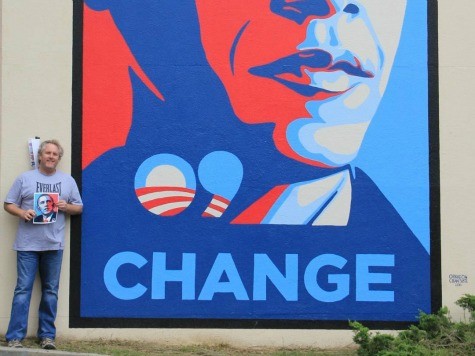The world is one year into its post-Andrew Breitbart phase and I’m sitting here torn about two paths I could take in trying to connect with you about him.
My first instinct is to play the pundit and pontificate on his importance and the long term impact I think Andrew Breitbart is going to have on American politics; he deserves that treatment because he was a serious person who made a deep impact.
On the other hand, I knew Andrew Breitbart and loved him and don’t want to reduce the man to a set of political talking points because that wasn’t HIM, you dig?
I can write a phrase like “Andrew had an infectious sense of fun and unpredictably,” but it’s a pale description compared what he was really like; what it felt like to tag along with him, to watch him stride through a public event or the little burst of excitement when the phone would ring and you saw it was Andrew calling. It’s like trying describe a roller coaster ride to someone who’s never been on one.
The people who knew Andrew will tell you that he wasn’t quite like anyone they’ve ever met, and they are telling you the truth. And we miss him. Oh, how we miss him. His loss leaves us mute to this day because each of us knows in our own way what we have lost: that presence, that bubbling excitement, that sense of not quite knowing what’s around the next corner, but that if Andrew is leading the way, it’s likely to be fun–or, if not “fun,” then at the very least pretty damn interesting.
That thing, that essence of who Andrew was, is gone now; the way love sometimes goes, filling your heart completely in one moment and a memory the next. Did that really happen? It seemed so real at the time.
I can tell you Andrew was a brilliant and brash thinker–but you already know that. I can tell you things you probably don’t know that will just make you sad, like that he wanted to pack up his family in an RV some day and go on a Big American Road Trip. So many people have told me in the blur of time since he left that they’d wished they had met him, and all I can tell you is that I bet he’d wish he had met you, too.
Andrew smashed the left’s notion of conservative stereotypes by the radical act of simply being himself: the guy from L.A., an unashamed, happy warrior who loved his family, his country, and whose eyes twinkled when he was in pursuit of a Big Story.
He was a human information conduit, picking up story fragments in staccato conversations with dozens of people throughout the day, then pulling the threads together in conversations with other people on email, by text or on Twitter, with dispatches sent from his seat in coach on an airplane or from a New York studio ready to make a TV appearance or from his home office when he was about to put the kids to bed.
If the Republican Party wants a relevant future, it needs to pay close attention to the legacy of Andrew Breitbart, who became a one-man Conservative Outreach Machine by doing the unthinkable and actually reaching out to people.
For some people, their politics are a matter of birthright and location, but Andrew knew firsthand that, for many Americans, declaring yourself a conservative was an act of bravery. If you want to learn a lot about liberal tolerance, try telling your friends and family that you’re going to vote Republican if you’re black or gay or live in a liberal enclave like San Francisco or New York City, or if you work in a field like academia or the entertainment industry.
I personally had it happen to me. I was a writer for the Huffington Post and a liberal when I met Andrew. The mere act of befriending him caused a number of friends to completely turn on me; this happened even at a time when I barely agreed with Andrew on the issues.
Andrew understood the real-life consequences of leaving the left and moving to the right for many people. And Republicans need to understand it if they want to start winning national elections again. It’s just about policy.
Conservatives need to listen to what Andrew tried to tell them about the importance of culture and art and education. The GOP leadership needs to understand that the right way to get more people into the tent is not to capitulate or water down the ideas, but to stand proudly as the new counterculture.
Andrew hated the left for all the right reasons. He hated the bullying, the hypocrisy, and the pure nihilism.
To Andrew, the #War was about something bigger than policy; he understood that it took something darkly powerful to make people turn away from American values, and it was that media/education/community-organizing machinery that he dedicated his life to exposing.

COMMENTS
Please let us know if you're having issues with commenting.